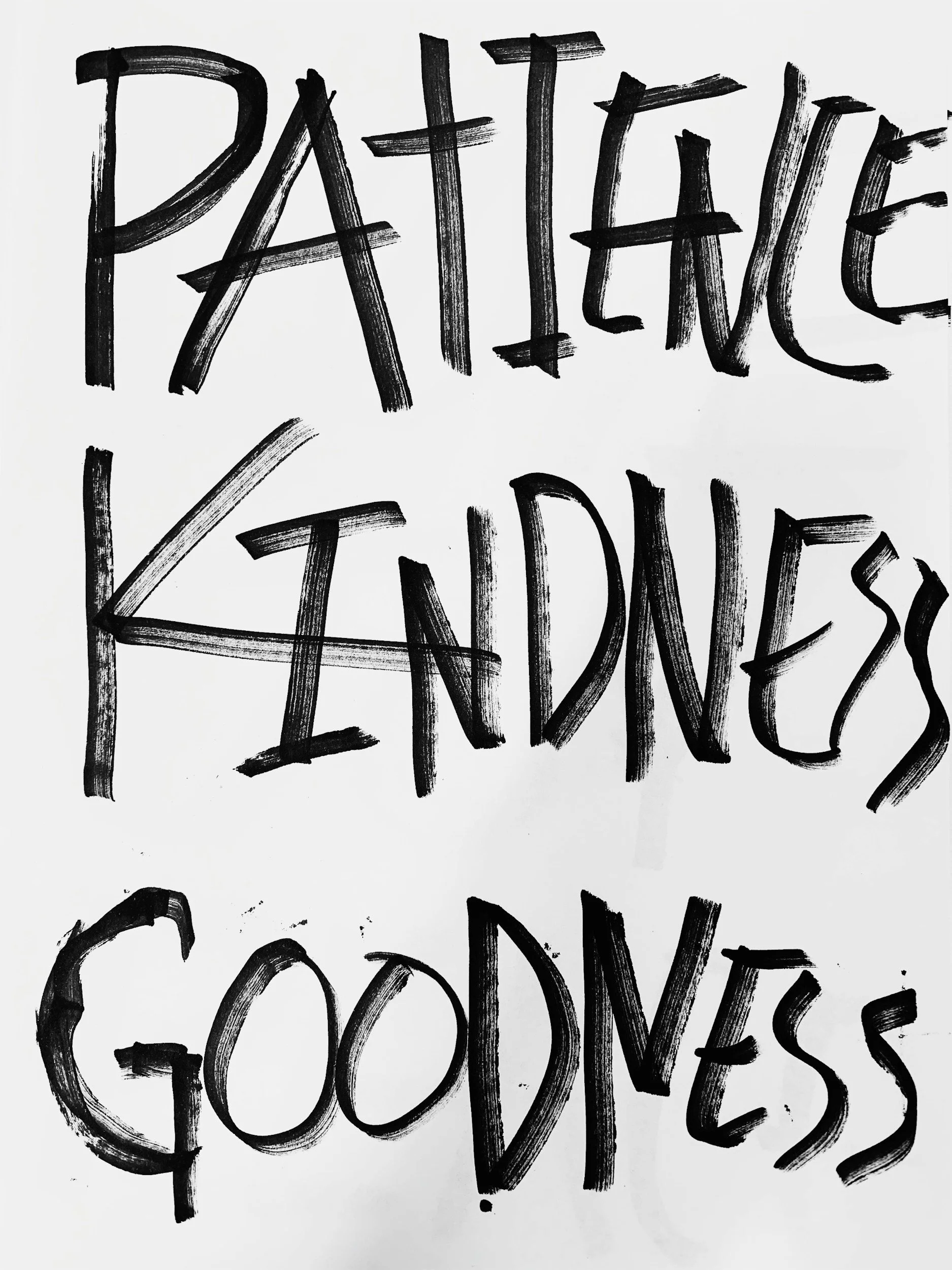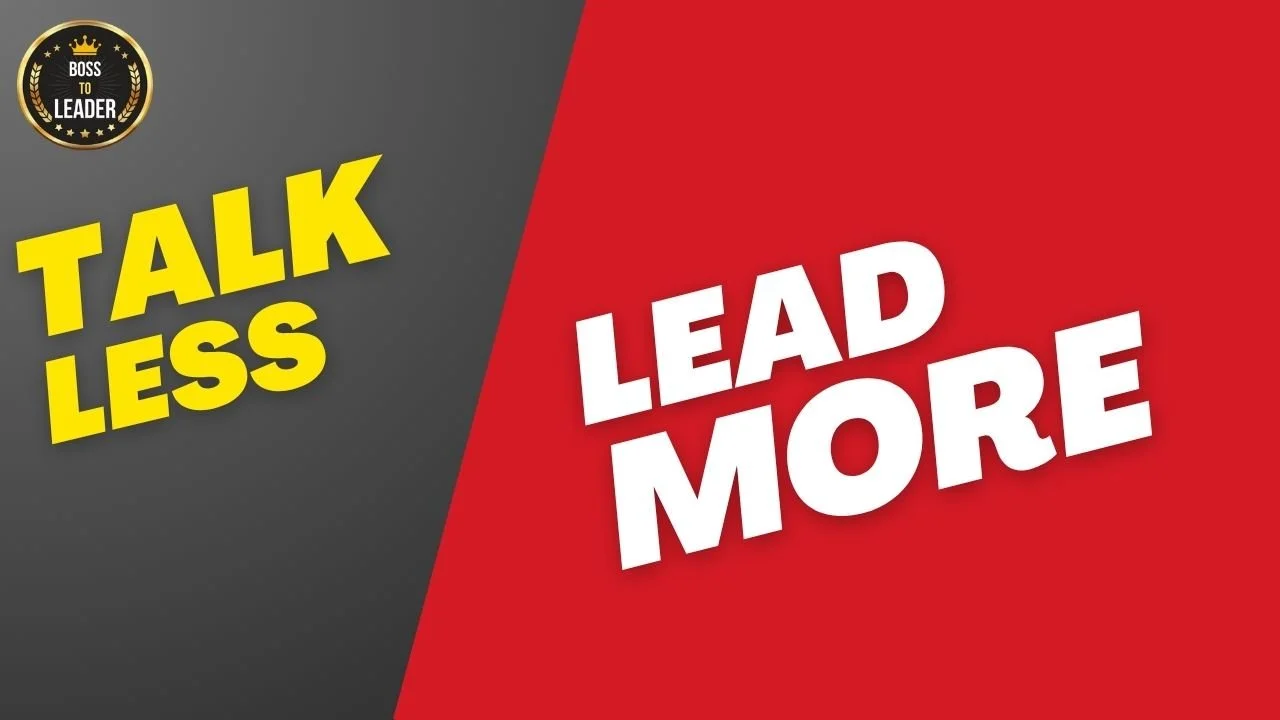Lead By Writing, Not Speaking🔑
When you lead by writing not speaking, you learn the power of how your words can make you unforgettable.
Ever sat in a meeting where the boss just talked… and talked… and talked… and by the end, you had no idea what was supposed to happen next?
Yeah. Me too. 🙄
Here’s the thing: Bosses talk to be heard. Leaders write so others can move forward.
Want to go from Boss to Leader?
If everyone sees you like a boss… you are not leading.
📞 Get your discovery call - let’s move you from boss to leader.
👉 www.leaderspathway.com/contact
And if you’re ready to stop being the “talky boss” and start being a leader your team can actually follow, let me help. But first—if you haven’t yet, grab your copies of my The Valuable Leader series (Book 1 and 2).
These guides are packed with practical strategies to help you lead with influence, clarity, and confidence—and reading them now will save you a lot of meeting-induced headaches later.
Words That Stick…
Spoken words inspire in the moment. They can get a team pumped, motivate action, or make people laugh at your latest joke. But spoken words fade… fast.
Research shows that 90% of what people hear in meetings disappears within minutes. Ouch, right?
Written words? Those stick. They guide, clarify, and show up for your team even when you’re not in the room. That quick note, the succinct email, the sticky on a monitor—these are the breadcrumbs that build trust, clarity, and loyalty. 😉
What Did Winston Churchill Know?
Want a heavyweight example?
Winston Churchill was the former Prime Minister of United Kingdom. During World War II, his memos and directives didn’t just inform—they shaped strategy. Generals read them. Ministers trusted them. Actions followed. His words traveled farther than his speeches and gave clarity when chaos reigned.
If Churchill could change the course of history with a memo, imagine what a well-written email, note, or summary could do for your team.
My Own “John Note” Moment
Now, I know what you’re thinking: “Yeah, Churchill is great, Velma, but I’m not running a world war here.” And you’re right. But here’s a personal story that proves written leadership works anywhere.
Years ago, after a tough week, I was doubting myself. I left my office dragging my feet, thinking about all the ways I had fallen short.
My leader, John, didn’t pull me into a speech or a pep talk. Nope. Instead, he left one short line on my desk: “You’ve got what it takes—don’t let this setback tell you otherwise.”
That tiny scrap of paper lived in my wallet for years. Whenever doubt crept in, I pulled it out. His written encouragement steadied me more than any hallway pep talk ever could. Spoken words comfort; written words remember.
Why This Matters to You
Writing multiplies your influence because it travels. It becomes a reference point, reduces misunderstandings, and builds trust. In a world of disappearing Zoom moments and endless email threads, clarity is rare—and rare things get attention.
Here are three action steps you can talk to Lead by Writing…
✍🏼 1. Send the 60-Second Email… Forget the 5-paragraph novel. One line can do wonders: “Great work today—I noticed.” Short. Sweet. Unforgettable.
✍🏼 2. Leave a Surprise Note… Desk, sticky note, coffee cup sleeve—leave a line like, “You matter. I see you.” Bonus points if your handwriting is a little wonky—it makes it feel real.
✍🏼 3. Write a 3-Line Meeting Recap…What we decided. Who does what. When it’s due. No fluff. Your team will thank you for saving them from “meeting amnesia.”
Get your blueprint to stop managing people and start leading them by using words.
📚 Your Challenge This Week:
Pick one person. One moment. Leave a written breadcrumb that encourages, guides, or acknowledges them. Watch how it sticks.
And don’t get too comfortable—next in the From Boss to Leader series: The Power of Invisible Advocacy. We’ll explore how Oprah and my own leader, Lynn, quietly championed overlooked talent—and how you can too. You don’t want to miss it.
Remember: Churchill’s memos shaped history. John’s note shaped my career. You don’t need a war room or a CEO title to leave words that matter.
I’m cheering 📣 for you!
P.S. ➡️ Listen to the Podcast here
PS: If you haven’t grabbed your copies yet, now’s the perfect time to get The Valuable Leader. Book 1 and 2 in the series will give you the leadership and communication tools, insights, and action steps to go from boss to leader—radical transparency included. Your team—and your future self—will thank you.





